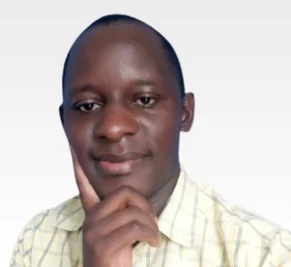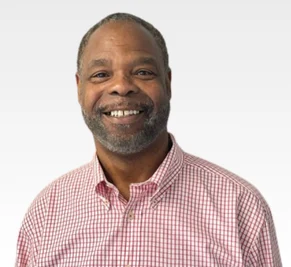Learn more about dual-diagnosis conditions and how Novara Recovery Center can help with our quality dual-diagnosis programming.
If you’re struggling with both mental health challenges and substance use, you’re not alone. Many people are facing the same battle, and while it can feel overwhelming, there’s hope.
You don’t have to go through this alone. Specialized treatment centers are here to help. They offer support for your mental health and substance use. This way, you can recover from both issues at the same time.
Dual diagnosis treatment helps people who have two main problems: a mental health disorder and a substance use disorder. Many people turn to drugs or alcohol to cope with mental health issues like depression or PTSD. This can often lead to substance abuse. When these two conditions occur together, they are called co-occurring disorders.
The National Survey on Drug Use and Health, which was released by SAMHSA, highlights some troubling trends:
The statistics are shocking, especially regarding the link between drug and alcohol use and mental health issues. Research shows that about 35% of adults experience co-occurring disorders. Even more surprising, some studies suggest that number could be closer to 50%.
This dual diagnosis is more common than many people realize. Specialized care clearly needs to address both issues at the same time.
The good news is that substance abuse treatment centers can help you with both issues at once. A dual-diagnosis treatment center provides a complete and combined approach to care. The goal is to treat mental health problems and substance abuse together, not separately.


When we discuss co-occurring disorders, we refer to having two issues. These are a substance use disorder and a mental health disorder. These can range from anxiety disorders to PTSD and beyond. Let’s look at some of the most common pairings:
Research shows that people with substance use disorder are more likely to develop other mental health issues. These include depression, anxiety, and bipolar disorder. The relationship is often complex, with one disorder exacerbating the other.
Depression and anxiety often show up together in those with dual diagnoses.
Many people dealing with substance abuse also face depression. Drugs or alcohol may numb the pain for a short time. However, they often make things worse over time by changing brain chemistry.
Depression is more than just feeling sad—it’s a persistent illness that can interfere with daily life. It can make it hard to enjoy activities you once loved and may lead to feelings of hopelessness. Some signs to watch for include:
Anxiety disorders can also coexist with substance use problems. Common anxiety disorders include:
You might have heard of Post-Traumatic Stress Disorder (PTSD) before, often in conversations about anxiety or trauma. PTSD is not classified as an anxiety disorder anymore. However, it has many similar experiences.
This is especially true for fear, stress, and how the body reacts to overwhelming events. It can happen to anyone. This includes those who have faced violence, abuse, natural disasters, or major trauma.
For people with post-traumatic stress disorder (PTSD), flashbacks and nightmares can feel like a never-ending cycle. They are forced to relive their trauma over and over again. This constant stress and anxiety greatly affect mental and emotional health. It makes it hard to feel safe, even when there is no danger.
Sometimes, the pain is so unbearable that you might start looking for ways to escape it. For many people, this can lead to using alcohol or drugs. They may do this to numb their memories or calm their anxiety, even if just for a short time.
But substances often have the opposite effect, pulling you into a cycle that’s harder to break. They don’t just fail to ease the pain. They can also increase your fear and anxiety over time. This can leave you feeling more stuck than ever.
Bipolar disorder can make life feel like an unpredictable, never-ending rollercoaster ride. You might feel very happy and excited for one moment. Then, in the next moment, you could feel sad and gloomy.
When you’re in a manic phase, feeling on top of the world is common—full of energy and racing thoughts. During these times, it can be very tempting to use alcohol or drugs. People may want to feel better or quiet the chaos in their minds.
On the flip side, the depressive episodes bring their own set of struggles. The heaviness of sadness, feelings of hopelessness, or sheer emotional exhaustion can become overwhelming. In these moments, substances can seem like a quick fix. They may help numb the pain or provide relief when nothing else works.
Studies reveal that nearly half of those with eating disorders—up to 50%—also use alcohol or illicit drugs. This rate is staggering, standing five times higher than the general population. On the other hand, about 35% of people with alcohol or drug problems also have eating disorders. This is 11 times more common than in the general population.
People with conditions like anorexia, bulimia, or binge eating may use drugs or alcohol. They do this to cope with feelings of shame, control, or low self-worth. This creates a scary cycle that can be extremely difficult to break without proper treatment.
Spotting the signs of dual diagnosis is vital to finding the proper help. Co-occurring disorders include both mental health issues and substance use. Because of this, symptoms can vary from person to person. Still, some warning signs tend to stand out.
Have you noticed sudden or dramatic changes in how you—or someone you care about—act or feel? For example:
Having trouble juggling day-to-day tasks is another warning sign. It is more than just a bad day when life begins to feel overwhelming and daily tasks become difficult to manage. You may observe little indicators, such as neglecting to take care of yourself or skipping work or school.
You might be avoiding friends and family. You could also be letting important tasks slide.
This includes caring for your kids and pets. It may even mean not keeping up with simple chores. In more severe cases, even basic self-care can seem impossible.
If any of this sounds like what you’re going through, it’s a strong signal that it’s time to reach out for support. You don’t have to do this on your own. Help is available, and taking that first step toward getting it can truly change everything for you.
Dual diagnosis doesn’t just affect emotions or behavior—it can take a toll on the body, too. Physical symptoms might include:
When these physical symptoms happen alongside mood or behavior changes, it’s a strong signal that a co-occurring disorder could be the cause.
Noticing these signs in yourself or someone else can be the first step to getting the care and support needed to heal.
Our caring professionals are standing by around the clock, ready to address all your questions.
Treating dual diagnosis isn’t a one-size-fits-all process. It requires a specialized approach that tackles both the mental health challenges and substance use issues at the same time. Addressing only one problem won’t lead to lasting recovery because the two are deeply connected. Let’s look at the key components of effective dual diagnosis treatment.
An integrated approach is essential when managing dual diagnoses. Together, therapists, counselors, and medical specialists create a treatment plan tailored to your particular requirements.
Integrated care means your care team treats both your substance abuse and mental health issues at the same time. They use proven talk therapies, holistic healing methods, 12-step support groups, relapse prevention, and other aftercare plans. This way, no part of your life is missed, and you get the extensive support you merit.
Managing medication is a very important part of many addiction treatment programs, especially for people going through medical detox. This can happen in a rehab center or while getting outpatient care. Medicines can help manage withdrawal symptoms and lessen cravings. This makes the detox process easier for both the body and the mind.
Even after detox, medication can play a supportive role in long-term recovery. For example, medications can help prevent relapse and stabilize mood. They can also treat other mental health issues like anxiety or depression. These issues are common in people recovering from substance use disorders.
When medication is managed well, it can:
Behavioral therapy and counseling is a cornerstone of recovery. It helps you get to the root of your challenges and equips you with tools to handle them in healthier ways. Two common approaches are:
Other evidence-based therapy options include:
Your therapist might include group therapy in your treatment plan. In these sessions, you can meet others who have similar struggles. One-on-one counseling sessions offer a safe space to explore your feelings and experiences more deeply.

We know that cost is a major factor for most people when seeking treatment for drug & alcohol abuse in Virginia. Novara Recovery Center works with most major insurance plans to help cover up to 100% of the costs associated with treatment at our program. To find out your personal options for treatment, get a free verification of insurance benefits right now by clicking the button below.









Choosing a dual-diagnosis treatment program is more than just treating symptoms. These programs help you heal from the inside out. Here’s how they make a difference:
Dual diagnosis programs help you understand why addiction happens. They also help you find the problems that may have led you here. Dealing with these root causes gives you a clear understanding and provides you with the skills to handle them directly.
These programs do more than just help you recover—they teach you practical ways to heal for a long time. The main goal isn’t just to beat addiction but to create a life that feels meaningful, stable, and truly satisfying.
As you participate in a dual diagnosis program, you will see improvements in your mental health. You will also notice better feelings in your daily life. Facing substance use directly and adopting healthier ways to handle emotions can reduce mood swings and anxiety. Life starts to feel more manageable, and you develop the tools to handle stress without falling back on substances.
One of the most significant aspects of these programs is a reduced risk of relapse. Managing both mental health issues and substance use illnesses simultaneously reduces the risk factor of relapse. A good aftercare plan gives you support after finishing the program. It helps you keep your recovery and avoid unhealthy habits.
Finding the right rehab center can feel overwhelming, but it’s one of the most critical steps to recovery. To make the process easier, here are a few key things to keep in mind when choosing a dual-diagnosis treatment center:
Start by making sure the facility is accredited and licensed. Accreditation means the center meets high standards for care and follows essential guidelines. Look for certifications from organizations like the Joint Commission or the Commission on Accreditation of Rehabilitation Facilities (CARF). This helps ensure you’re in good hands.
When you’re looking for a treatment center, remember that not all of them are the same. What works for one person might not work for you, and that’s okay. Some centers focus more on medical detox. Others may emphasize therapies like cognitive behavioral therapy or group counseling.
The key is to find a program that looks at both your mental health and substance use. After all, your recovery journey isn’t just about one part of your well-being—it’s about all of you. Take your time to really dive into what each center offers. Make sure the services they provide align with your personal goals and needs.
The people guiding your recovery play a huge role in your experience. Make sure the center has licensed mental health professionals, addiction counselors, and medical experts. They should specialize in dual diagnosis treatment. An experienced and compassionate team can make a world of difference.
If you or someone you care about is navigating the challenges of bipolar disorder or another mental health condition alongside substance use, Novara Recovery Center is here to help. Contact us, and one of our team members can guide you through our options for treating co-occurring disorders. We can help you find the best way to start or continue your recovery journey.
Many people have taken control of their lives through our Dual Diagnosis program. They find a chance to live happier and healthier lives. Whether you’re ready to start or you’re looking for help for someone you care about, don’t wait. We’re here to help you through every part of the journey.
You can call us at (703) 705-7870. You can also email us at info@novararecovery.com. Visit us at 2815 Old Lee Hwy Floor 2, Fairfax, VA 22031. Together, we can start a new chapter filled with hope and healing.
Panic Disorder: https://www.nimh.nih.gov/health/statistics/panic-disorder
Stress & Anxiety: https://schools.shrewsburyma.gov/district/stress-anxiety-staff
How Common Is PTSD in Adults?: https://www.ptsd.va.gov/understand/common/common_adults.asp
Migrations in Humanistic Therapy: https://ouci.dntb.gov.ua/en/works/4wrj6Am7/
Sample Records for Gestalt Therapy: https://www.science.gov/topicpages/g/gestalt+therapy
Written By:

Mental Health Writer
Geoffrey Andaria is a seasoned writer and editor specializing in mental health content. With a B.A. in English and Journalism, he possesses a solid foundation in crafting freelance articles and conducting research. Geoffrey has also completed courses in social work. He dedicates himself to providing valuable and informative content for individuals impacted by mental health challenges and addiction.
Medically Reviewed By:

Expert Contributor
Dr. Williams is currently a board member for two non-profit service organizations. He holds a Master’s degree in Human Services from Lincoln University, located in Philadelphia, Pennsylvania.
He possesses a Ph.D. in Clinical Psychology from Union Institute and University, located in Cincinnati, Ohio. He holds a license to offer addiction counseling in both New Jersey and Connecticut. Additionally, he has submitted an application to become a licensed psychologist in New Jersey.






2815 Old Lee Hwy Floor 2, Fairfax, VA 22031